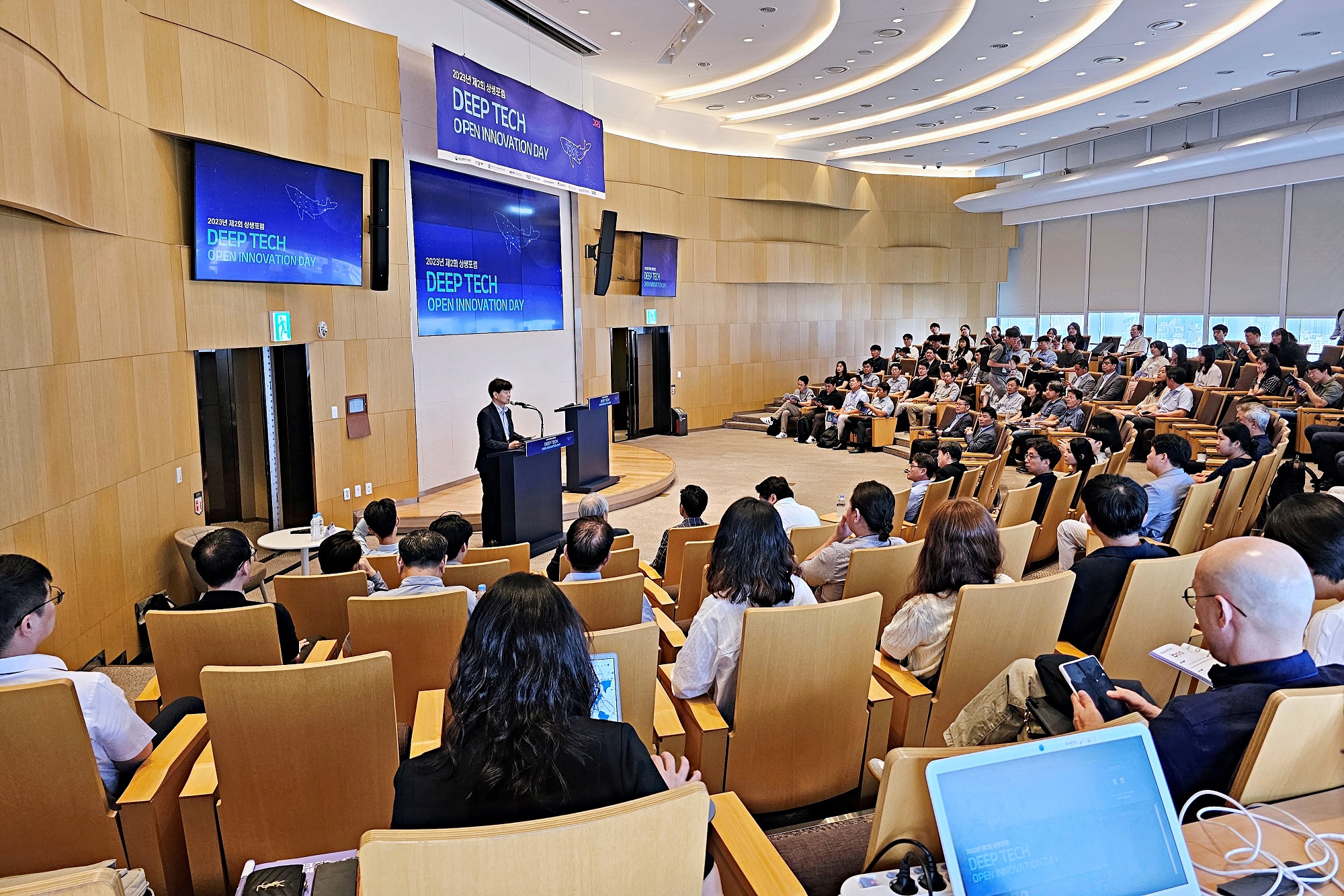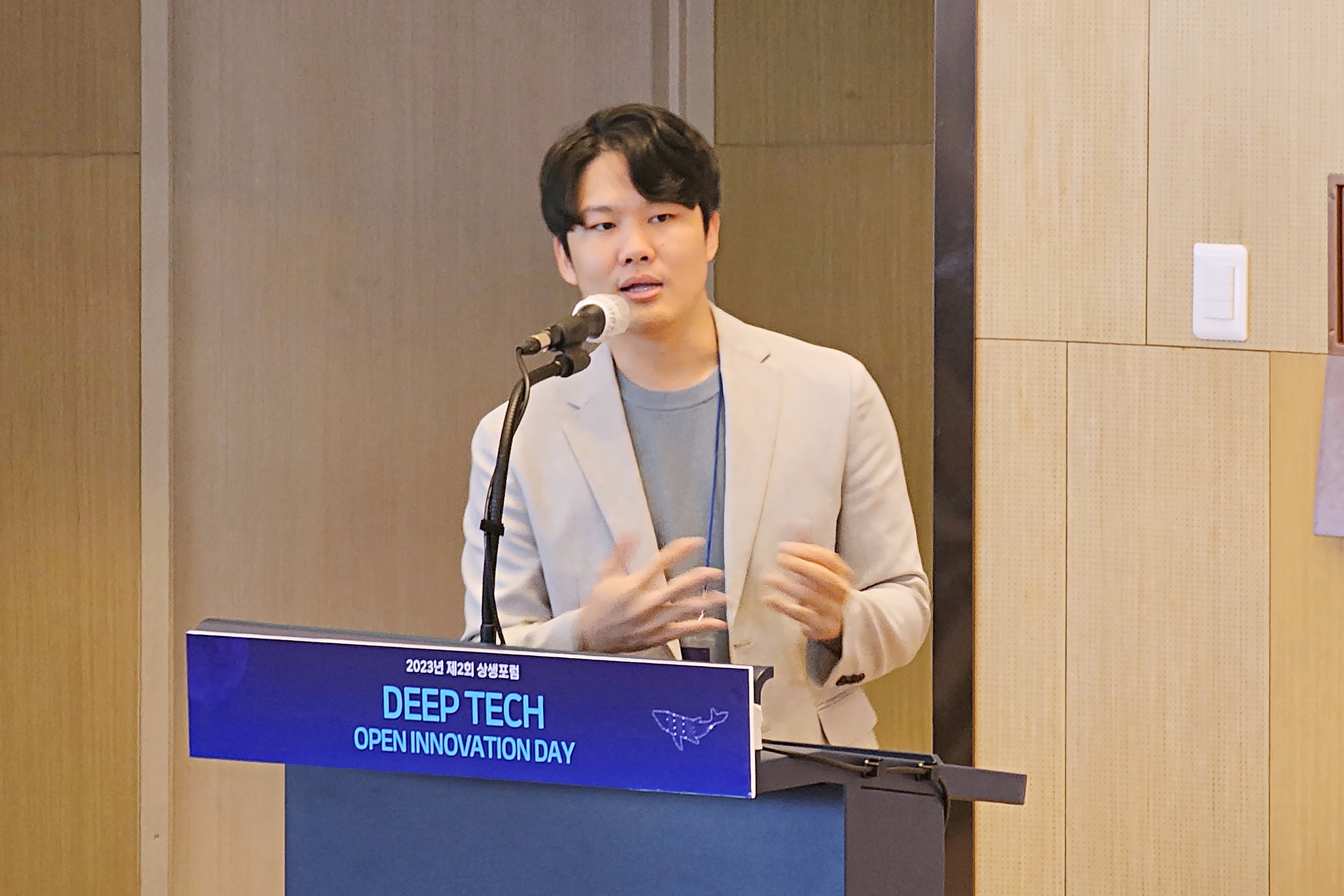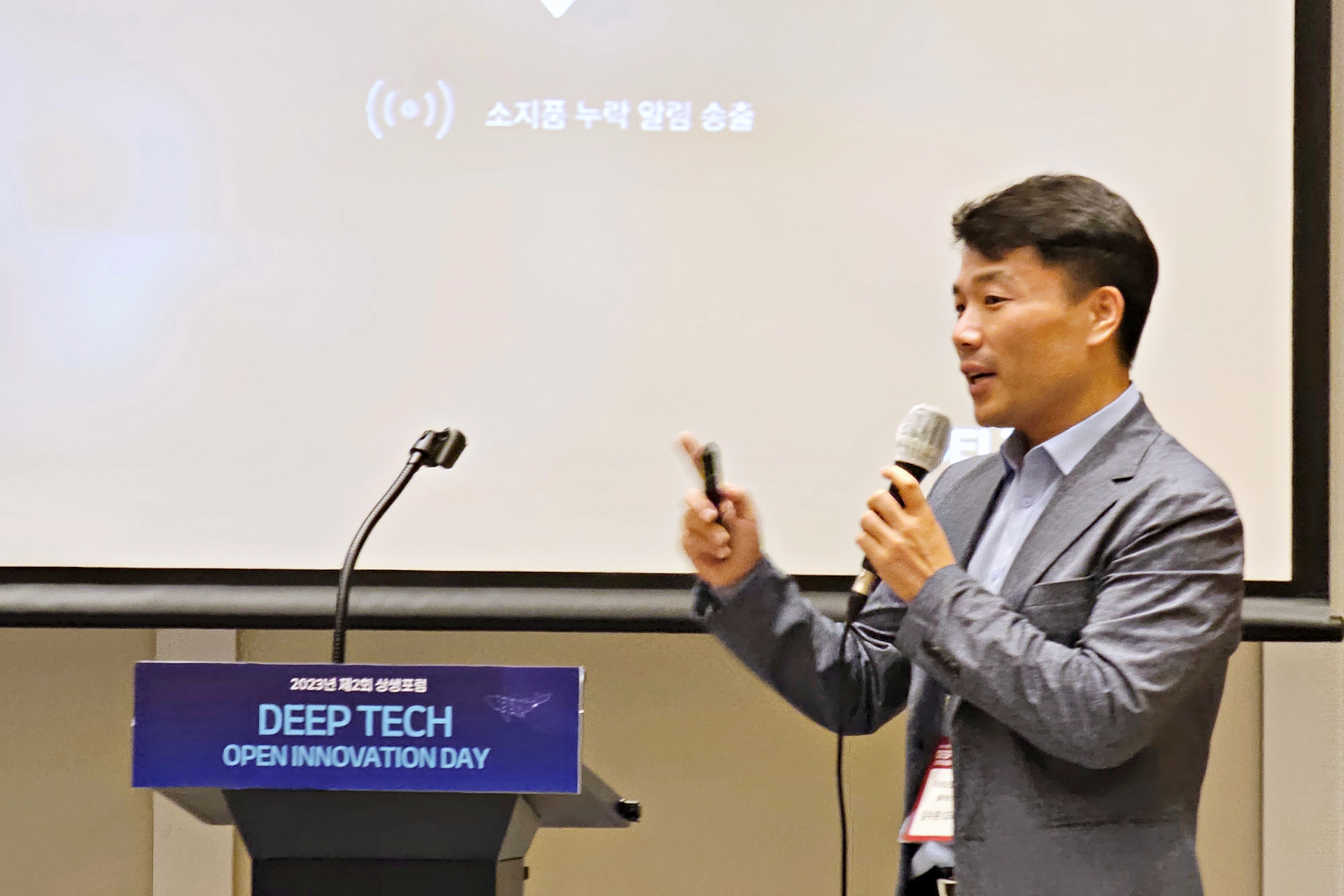국내 시스템반도체 스타트업 생태계가 반도체 기반 수요 증가와 인공지능 열풍에 힘입어 도약을 꿈꾸고 있다. 올해 두번째로 열린 시스템반도체 상생포럼에서 딥테크 기업들이 다수 참여해 기술과 비전을 교류했다.
서울대 SIPC, 딥테크 오픈 이노베이션 데이 개최
모빌린트, “레거시단 엣지 AI 대비 부족에 주목”
델타엑스, 자율주행서 라이다 대체 비전 솔루션
국내 시스템반도체 스타트업 생태계가 반도체 기반 수요 증가와 인공지능 열풍에 힘입어 도약을 꿈꾸고 있다. 올해 두번째로 열린 시스템반도체 상생포럼에서 딥테크 기업들이 다수 참여해 기술과 비전을 교류했다.
17일 잠실 롯데월드타워 SKY 31 컨벤션에서 2023년 제2회 상생포럼 ‘딥테크 오픈 이노베이션 데이(Deep Tech Open Innovation Day)’가 열렸다. 서울대 시스템반도체산업진흥센터(SIPC)가 주관한 이번 행사는 미래 신성장분야를 견인할 딥테크 스타트업들이 한자리에 모였다.
△시스템반도체 △미래모빌리티 △바이오헬스 △로봇 △친환경에너지 분야에서 반도체 팹리스 기업들과 각종 첨단 IT솔루션 스타트업들이 모여 이종기술 간 융합을 도모하고 최신 기술을 발표했다.
 ▲2023년 제2회 상생포럼 ‘딥테크 오픈 이노베이션 데이(Deep Tech Open Innovation Day)’
▲2023년 제2회 상생포럼 ‘딥테크 오픈 이노베이션 데이(Deep Tech Open Innovation Day)’
최창기 서울대학교 교수는 “초기 스타트업들은 새로운 가치를 창출하는 기업들로 신시장을 개척하기 위해선 초기 시장의 기술을 갖고 있는 스타트업들이 한데 모여 시장 확대를 도모해야 한다”고 말하며 “이번 상생포럼이 새로운 시장의 기회를 창출할 수 있는 자리가 되고자 마련된 행사이다”라고 밝혔다.
이혁재 센터장은 “서울대 SIPC는 시스템반도체 분야 스타트업들을 지원하는 업무를 그간 진행해왔다”며 “이번에는 5개 분야의 스타트업들이 한데 모여 이종(異種) 기술을 소개하고 융합할 수 있는 자리를 마련했다”고 말했다.
이날 행사에는 인공지능 기술 역량을 지닌 기업들이 다수 보였는데, 그 중에서도 엣지 환경에 적합한 AI솔루션과 컴퓨터비전 솔루션들이 소개됐다.
■ 모빌린트, “다가오는 엣지 AI 시장 대비”

▲신동주 모빌린트 CEO
전문가와 업계 관계자들은 현시점에 AI반도체는 데이터센터향 AI 서버칩이 시장 점유를 높게 가져가고 있지만 향후 빅테크 기업과 클라우드 사업자들의 AI칩 빅사이클 이후엔 AI 추론이나 엣지단에서의 AI칩 수요가 높게 뒤따라올 것이라고 전망하고 있다.
신동주 모빌린트 CEO는 “CPU 및 GPU를 포함한 레거시 솔루션에는 아직 엣지 AI가 대비되지 않았다는 측면에 주목했다”며 모빌린트는 커지고 있는 AI반도체 시장 속에서 엣지 AI를 타겟으로 하는 전성비·가성비의 AI칩 솔루션 개발에 박차를 가하고 있었다.
모빌린트는 △로봇 △CCTV △스마트시티 등 임베디드 환경에서 처리될 수 있는 AI 솔루션을 제공하는 팹리스 스타트업으로, 아직은 대부분의 업체들이 실증 레벨에 머물고 있는 엣지 AI를 상업성 있는 제품으로 양산화할 수 있는 레벨까지 고도화하는 데 초점을 맞췄다.
모빌린트의 AI 가속기는 △성능 △전력 효율 △가격 간의 트레이드오프 관계를 개선할 수 있는 전성비·가성비의 칩을 통해 시장 진입을 준비하고 있다.
신 대표는 “엔비디아 300만원대급 GPU 대비 1/3 수준의 가격에 3.3배 높은 성능, 전력 소모는 1/5 이하로 줄인 엣지 AI칩을 개발했다”며 “이렇게 엔비디아 GPU와 비교해 크게 상회할 수 있는 대체 경쟁력을 보여줘야 시장 진입이 가능하다고 본다”고 덧붙였다.
모빌린트 엣지 AI칩은 이미 시제품이 생산돼 올해 하반기 안양시, 판교 등지에서 엔비디아 GPU를 대체해 실증이 예정돼 있다. 폼펙터는 카드 형태의 칩과 스탠드 얼론 AI 박스 형태인 2가지 타입으로 출시됐으며, 엣지 분야를 타겟하는 다양한 알고리즘을 높은 정확도로 처리할 수 있다고 강조했다.
신 대표는 “주목해야 되는 부분은 전력 효율 유지하면서 얼마만큼 프로그래머빌리티(programmability)를 높일 수 있는가에 있다”며 트레이드 오프 관계 있는 이러한 요소들의 수치를 끌어올리는 게 중요하다고 강조했다.
■ 델타엑스, “라이다 대체하는 컴퓨터 비전 카메라”

▲김수훈 델타엑스 대표
델타엑스는 컴퓨터비전을 연구·개발하는 인공지능 솔루션 회사로 카메라에 적용되는 컴퓨터비전 기술을 통해 △로봇 △자율주행 등의 애플리케이션에 인지 솔루션을 제공하고 있다. 대부분 컴퓨터공학을 전공한 석·박사 인력으로 구성된 델타엑스는 국내외 인공지능대회서 1·2위를 기록하는 등 걸출한 이력과 특허 보유를 통해 기술력을 입증하고 있음을 과시했다.
김수훈 대표는 “자동차는 엣지 환경에서 동작하는 애플리케이션인 만큼 엣지에서의 빠른 데이터 처리를 위한 최적화·경량화 설계가 관건이다”라면서 “델타엑스는 대부분 자체 알고리즘을 통해 데이터를 처리하고 있다”고 설명했다.
자율주행 자동차는 대부분 라이다를 통해 주변 환경을 매핑하고 인식하는데, 이는 비용 상승을 견인하는 요소이다. 김 대표는 “싱글 카메라에서도 깊이 측정이 우수하며 30fps 영상에서 대략 29-30까지의 데이터를 처리할 수 있다”면서 특정 ROI 영역에서 라이다 대비 95% 정확도를 달성하는 모델도 구현했다고 밝혔다.
이처럼 라이다를 대체할 수 있는 카메라 솔루션은 단순히 주변만 인식하는 것이 아니라 3차원 구조체 재구성을 통해 라이다의 매핑처럼 주변 공간을 매핑도 할 수 있어 제조사에 이점을 제공할 수 있다.
델타엑스는 △현대차 △기아 △현대모비스 등과 함께 12개의 프로젝트를 진행하고 있다고 공개했으며, 2026년 양산을 목표로 차량 내 운전자 및 탑승자 안전을 모니터링하는 시스템을 구축 중에 있다.
김 대표는 “현재까지 시드 투자를 받은 델타엑스는 올해부터 현대차 등에서 추가적인 투자와 함께 SIFI(Systemically Important Financial Institutions)로부터 펀드 레이징을 진행하게 될 것이다”라고 밝히며 2026년 고객사에서 본격 양산이 진행되면 델타엑스의 매출 성과도 가시화될 것으로 전망했다.


